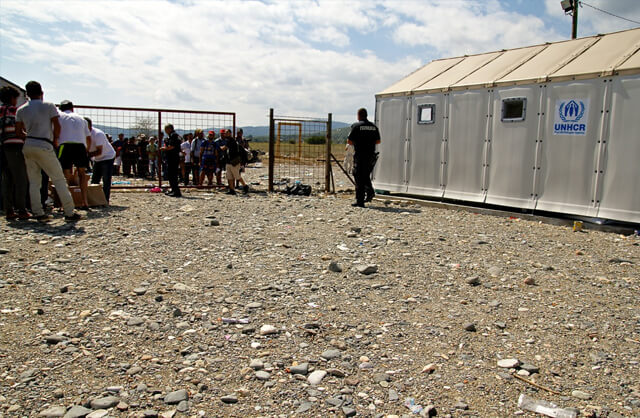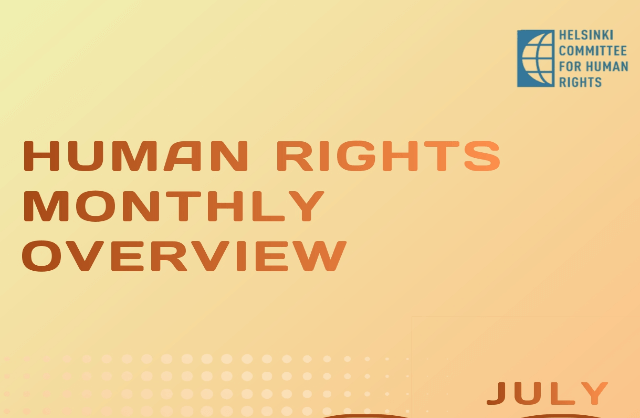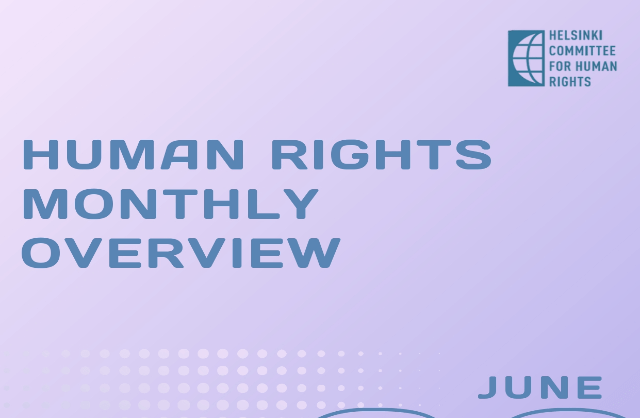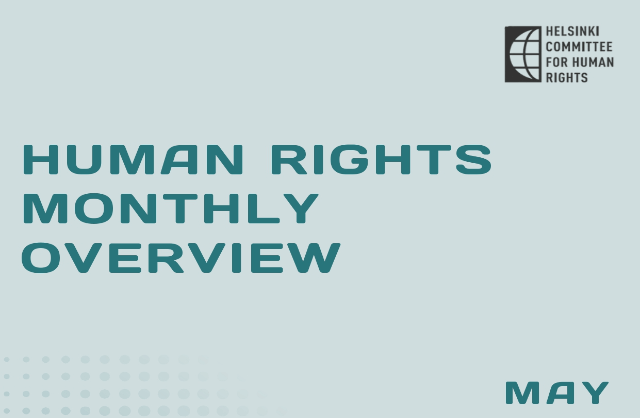The situation at the border crossings Gevgelija and Kumanovo for the period: 07.03.2016 – 13.03.2016
March 15, 2016

The weekly report on the situation at the border crossings Gevgelija and Kumanovo includes the following topics: Available facilities and conditions at the camp and Institutional treatment.
Gevgelija
Available facilities and conditions
132 certificates for expressed intent for submission of asylum request were issued this week, only on 07.03.2016. Not a single certificate was issued during the rest of the week due to the official closing of the Balkan route for the refugees. This decision was adopted at the Summit of the countries of the European Union and Turkey which took place on 07.03.2016 in Brussels. Additional measures for dealing with the refugee crisis were proposed there, giving Turkey and Greece the main roles in the process.*
4 new containers were delivered to the camp where registration windows will be set up.
Institutional treatment
At the start of the week, the refugees who had spent several days in the tent in front of the camp (relocated from Tabanovce), were being deported back to the Greek side in smaller groups of about 40 people on several occasions. By 13.03.2016, 12 people were sheltered in the camp. On 13.03.2016, 18 refugees were transported from Tabanovce by train (from the group left in the buffer zone), 9 of whom were sent back to Greece, at their own will. With this, the number of refugees staying in the camp amounted to 21.
On 10.03.2016, Victoria Nuland, US Assistant Secretary of State for European and Eurasian Affairs, paid a visit to the camp.
Kumanovo
Available facilities and conditions
Approximately 1000 refugees have been placed in the camp for more than one week. The camp has reached its full capacity, and there are refugees who are placed even in the new facilities intended to be a kitchen. Several new containers for accommodation have been brought.
4 tents have been set up in the camp, in order to provide shelter for the refugees from the buffer zone where women and children will be accommodated, at their own will.
Institutional treatment
On 07.03.2016, a train carrying groups of refugees from Syria and Iraq arrived to Tabanovce, who immediately proceeded towards the Serbian border. Due to the closing down the border, they were not allowed to cross, which resulted in 430 refugees being stranded in the buffer zone between the borders. Due to the bad weather conditions, their circumstances significantly deteriorated in the oncoming days. Their camping tents were set up in a field, and due to the abundant rainfall, most of them got flooded with mud. As a sign of protest, the refugees from the buffer zone refused the donations of clothes and food on certain days, as well as the medical aid. They do not have access to toilets. After spending several days in such conditions, deteriorated health can be observed in many of them.
About 50 of the refugees from the buffer zone between the borders have been sheltered in new tents in the camp. The rest of them refused to take shelter in the camp, as a sign of protest. Towards the end of the week, electricity generators were taken to the buffer zone so that they can have electricity.
In the morning hours of 11.03.2016, 46 refugees from Morocco, Iran and Afghanistan were discovered in a cargo train headed for Serbia.
On 13.03.2016, a group of 18 refugees from the buffer zone who volunteered, were taken by train to the camp in Gevgelija, where they took shelter.
The fact that several refugees who said that wanted to seek asylum to this country were prevented from doing so by the members of the Ministry of Interior present on field is concerning. The police officers resorted to excuses that there were no asylum forms available, that the people in charge of asylum were not there etc.
The Helsinki Committee condemns this practice, which is unacceptable and violates the refugees’ right to seek asylum. The Helsinki Committee appeals to the authorities to urgently and without any further delay process the asylum requests of the refugees who desire to submit them.
Problems also occur when the refugees want to raise funds sent to them from their relatives. There is no possibility for them to travel to Kumanovo and raise money from a bank (or from Western Union).
The Helsinki Committee urges for a solution to be found for organized or accompanied transport from and to the camp of refugees who want to take out some cash.
The residents of the surrounding villages sell alcohol to the refugees in the camp, and when intoxicated the refugees often cause fights and quarrels in the camp. On several occasions the police was forced to intervene in order to break up the groups (Afghanis) who argued and fought.
* https://www.consilium.europa.eu/en/press/press-releases/2016/03/07-eu-turkey-meeting-statement/
 This report is made possible by the generous support of the Foundation Open Society Institute (FOSI) within the project „Improvement of the rights protection for migrants and asylum seekers in the Republic of Macedonia“. The contents are the responsibility of the Helsinki Committee for Human rights of the Republic of Macedonia and do not necessarily reflect the views of FOSI.
This report is made possible by the generous support of the Foundation Open Society Institute (FOSI) within the project „Improvement of the rights protection for migrants and asylum seekers in the Republic of Macedonia“. The contents are the responsibility of the Helsinki Committee for Human rights of the Republic of Macedonia and do not necessarily reflect the views of FOSI.


